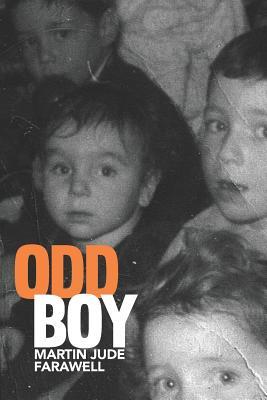In poems at once dazzling and trussed to quietude, Martin Jude Farawell's Odd Boy traverses a fretwork of silence and sonority. From the solemn pews of a Catholic childhood, the improvised dance floor at his wedding, and the mossy underbelly of late and early spring times, Farawell explores what it means to learn and unlearn his constellation of selves: boy, son, brother, husband, human, believer in the beauty of the smallest hour. Whether imagining the creation of the original family through the Biblical canon or recounting the violence of his own, Odd Boy is an atlas for the pursuit of a fierce gentleness. Farawell's poems pursue desire and its specter in landscapes large and small, perennially unafraid of their own song, unafraid to take us to the heart of it: "But now, / it is the very autumn / of autumn. / What was it? / What I wanted?"

In poems at once dazzling and trussed to quietude, Martin Jude Farawell's Odd Boy traverses a fretwork of silence and sonority. From the solemn pews of a Catholic childhood, the improvised dance floor at his wedding, and the mossy underbelly of late and early spring times, Farawell explores what it means to learn and unlearn his constellation of selves: boy, son, brother, husband, human, believer in the beauty of the smallest hour. Whether imagining the creation of the original family through the Biblical canon or recounting the violence of his own, Odd Boy is an atlas for the pursuit of a fierce gentleness. Farawell's poems pursue desire and its specter in landscapes large and small, perennially unafraid of their own song, unafraid to take us to the heart of it: "But now, / it is the very autumn / of autumn. / What was it? / What I wanted?"